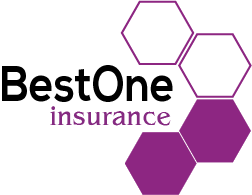So, you’ve recently started your own trucking business, and now you’re faced with finding the right insurance coverage to protect your investment. One type of coverage you may come across is liability insurance, which helps cover the costs if you’re held responsible for an accident or injury caused by your truck.
But liability insurance is just the tip of the iceberg regarding trucking insurance. Other types of coverage available can safeguard your cargo, protect against physical damage, and much more. Curious to know what these other types of coverage are? Well, let’s dive in and explore the world of trucking insurance together.
Liability Insurance
Liability insurance protects trucking companies and drivers from potential financial losses in the event of an accident or injury caused by their vehicle. Regarding liability insurance in the trucking industry, understanding the importance of liability limits is crucial.
Liability limits determine the maximum coverage the insurance policy will provide in case of a claim. Choosing liability limits that adequately protect your assets and meet the requirements set by law or the companies you work for is important.
However, it’s equally important to be aware of the common exclusions in liability coverage for the trucking industry. These exclusions can vary depending on the insurance provider and the specific policy, but some common exclusions include intentional acts, pollution-related incidents, and claims arising from illegal activities. It’s important to carefully read and understand your insurance policy to know what is covered and what is not.
Sufficient liability insurance with appropriate limits can protect you from potential financial ruin in an accident or injury. It provides peace of mind knowing that you are financially protected in case of a claim. So, review your policy regularly, understand the coverage and exclusions, and consult with your insurance provider to ensure that you have the right liability insurance to suit your needs.
Cargo Insurance
Cargo insurance is a crucial form of coverage for trucking companies and drivers. It protects against loss or damage to the cargo being transported. Regarding cargo insurance, the claims process plays a significant role.
In the event of a loss or damage to the cargo, it is important to have a smooth and efficient claims process in place. This ensures that the necessary steps are taken to file a claim, assess the damage, and receive compensation promptly.
Several factors affect the rates of cargo insurance. The type of cargo being transported is a key consideration. Certain types of cargo, such as hazardous materials or high-value goods, may be associated with higher risks, leading to higher insurance rates. The value and quantity of the cargo also play a role, as higher-value or larger shipments may require more coverage.
The security measures taken by the trucking company can also impact cargo insurance rates. Implementing measures such as driver training, vehicle tracking systems, and secure storage facilities can help reduce the risk of theft or damage to the cargo, potentially leading to lower insurance rates.
Physical Damage Coverage
If you’re looking to protect your truck from physical damage, a coverage option is specifically designed for that. Physical damage coverage provides financial protection for your truck in case it gets damaged due to accidents or other unforeseen events. There are two main types of physical damage coverage: collision and comprehensive.
Collision coverage helps pay for repairs or replacement if your truck collides with another vehicle or object. Whether it’s a minor fender bender or a major accident, collision coverage can help cover the costs. This includes damages caused by flipping over or rolling your truck.
Conversely, comprehensive coverage covers damages to your truck that are not caused by collisions. This can include theft, vandalism, fire, natural disasters, or even hitting an animal on the road. Comprehensive coverage provides peace of mind, knowing you’re protected against a wide range of potential hazards.
When choosing physical damage coverage for your truck, it’s important to consider the value of your vehicle, your budget, and the level of risk you’re comfortable with.
While collision coverage is generally required if you have a loan on your truck, comprehensive coverage may be optional. However, it’s always a good idea to have both to ensure you’re fully protected against unforeseen circumstances.


